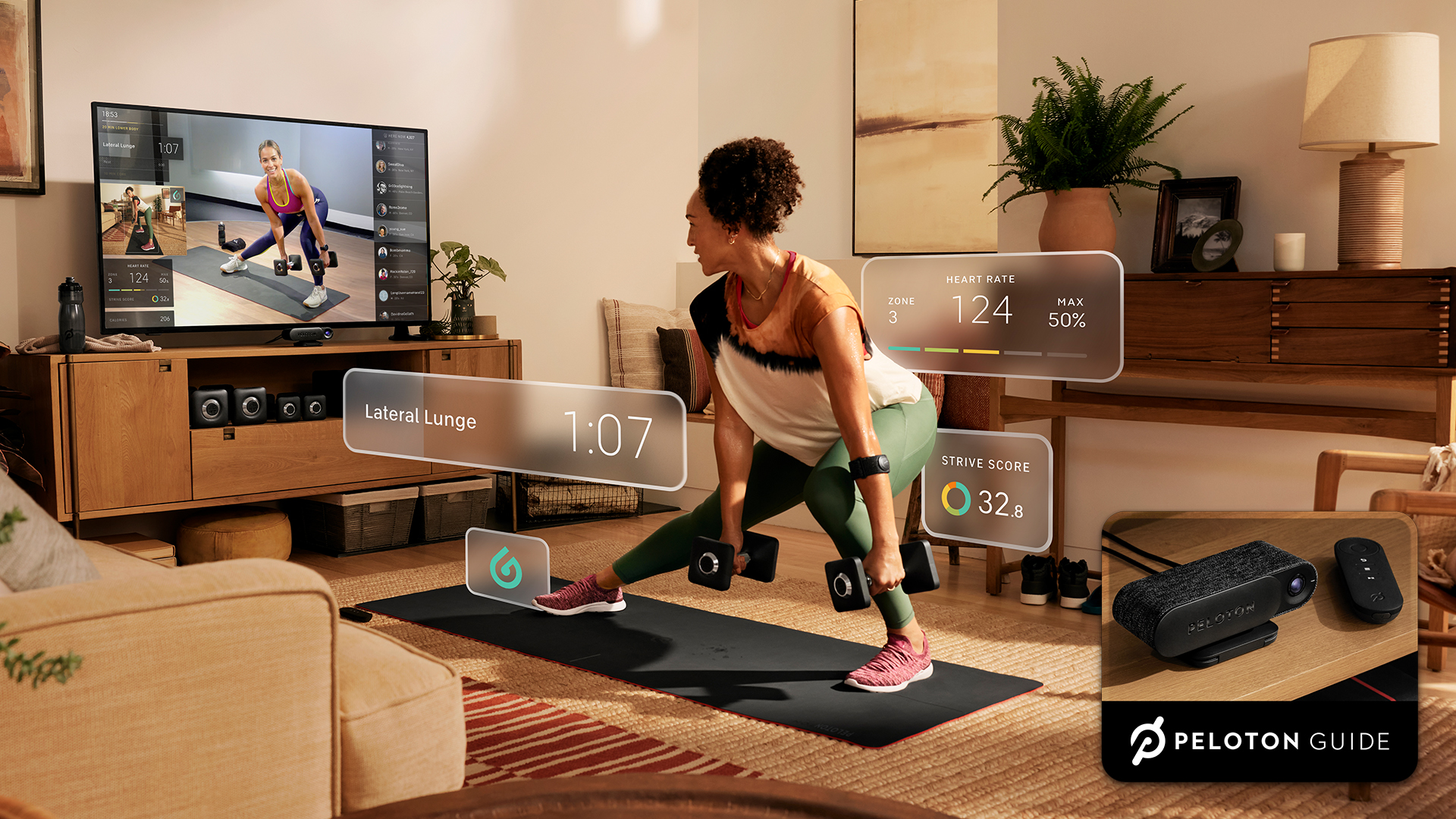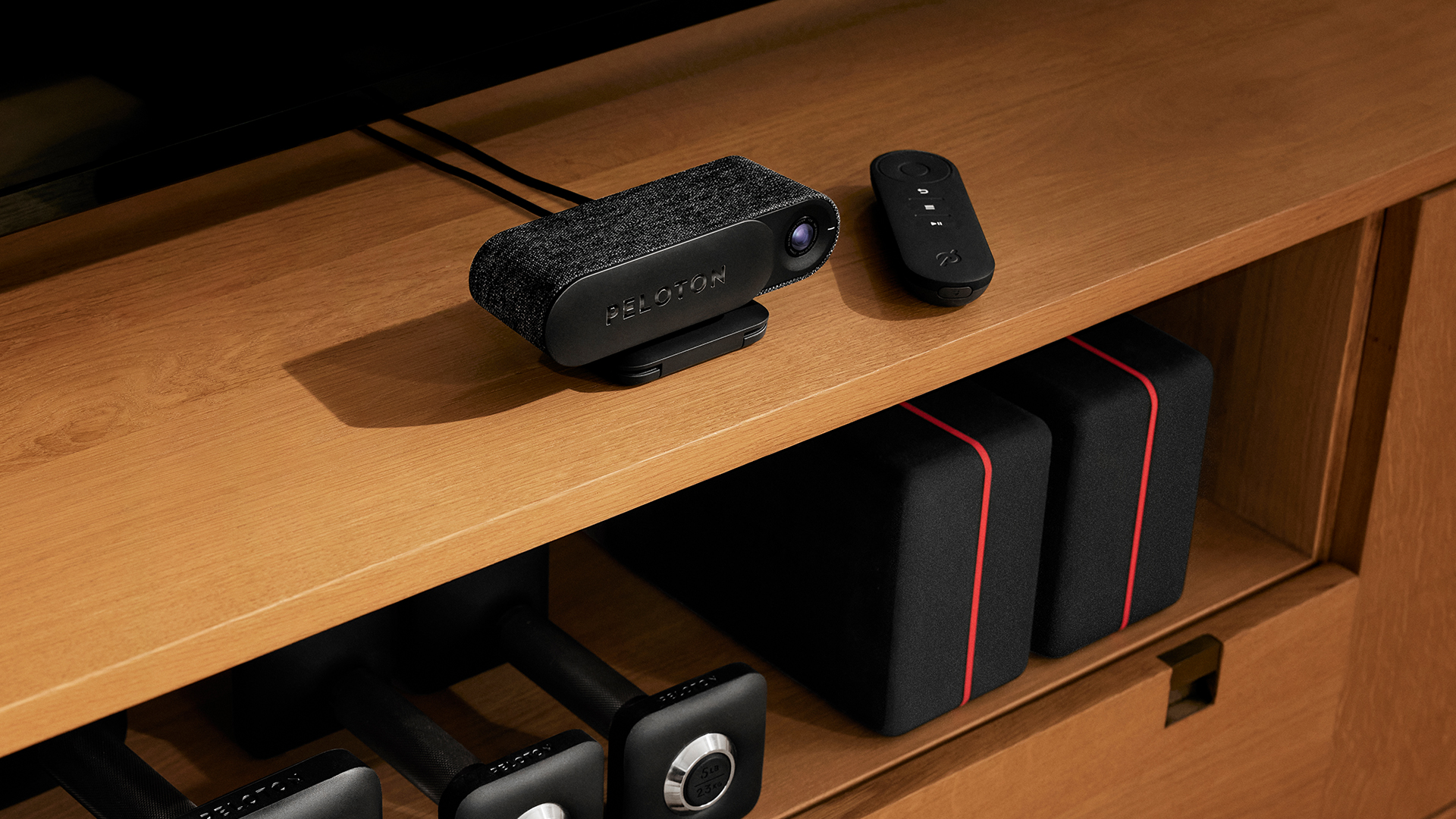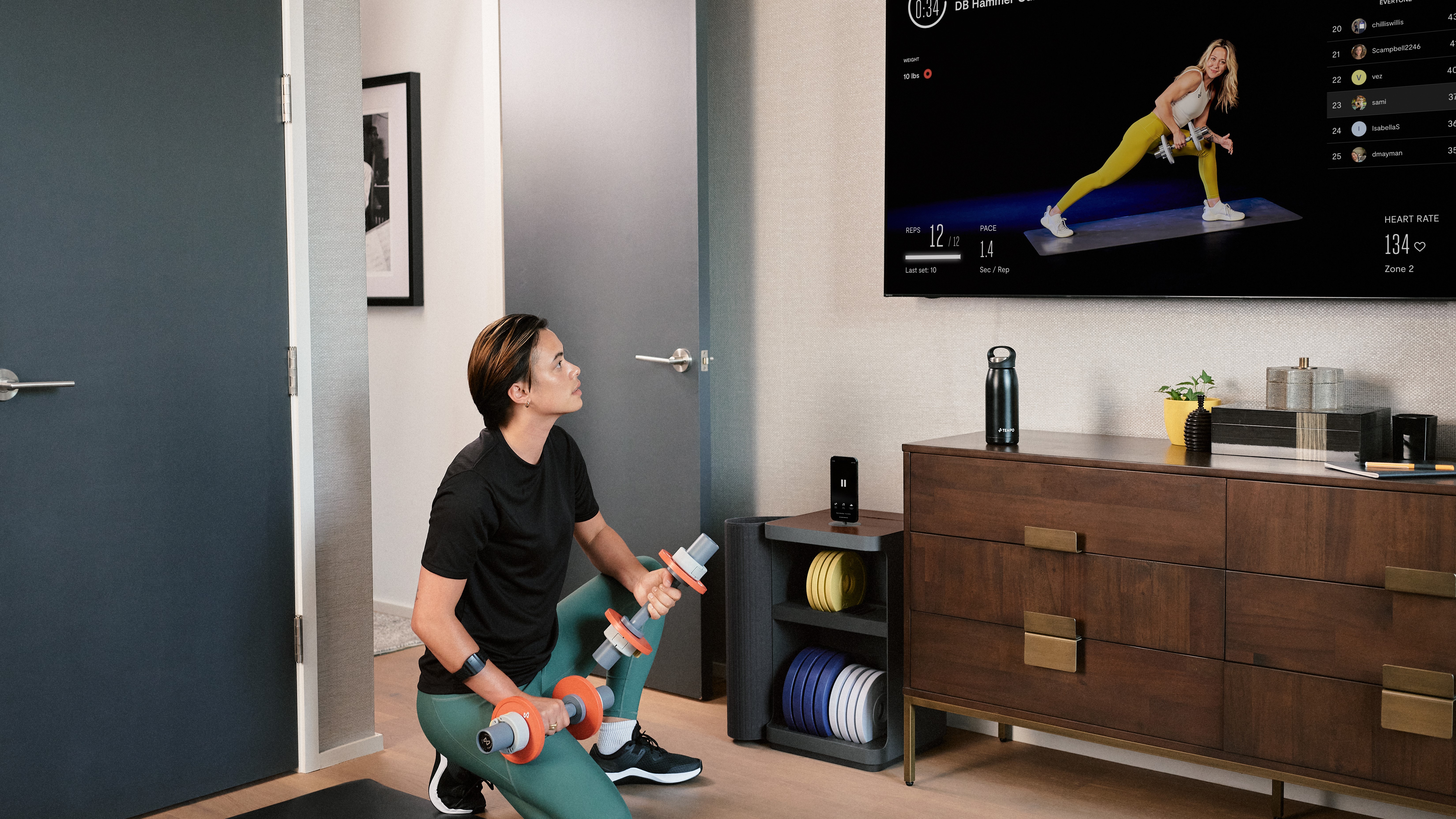Peloton brings AI to strength training – and it's much cheaper than you'd expect

Sign up for breaking news, reviews, opinion, top tech deals, and more.
You are now subscribed
Your newsletter sign-up was successful
Peloton has released a new strength-training tool, Peloton Guide, which uses motion-tracking and AI to help monitor your movements and progress. It's also surprisingly cheap at $495 / £450 / AU$750 for the device itself, plus a monthly membership fee of For $12.99 / £12.99 / AU$16.99 for classes.
Peloton's bikes and treadmills are enormously popular, but also famously expensive. The Guide (a voice-controlled camera equipped with motion sensors that connects to your TV) is far more affordable, and comes bundled with the new Peloton Heart Rate Band – a device that we've been expecting since Peloton acquired sports wearables company Atlas back in March this year.

As you follow a workout on-screen, the Guide's Smart Camera Technology will allow you to directly compare your form with that of the instructor in real time, allowing you to make changes and corrections on the fly. There's also a Body Activity tool that will show which muscles you've worked recently, and suggest workouts to try based on the groups that need training.
The system is voice activated, so there's no need to reach for the device's remote to control the service, and the camera has both a physical mute switch and a lens cover so you can be assured of privacy between workouts.
Peloton Guide will launch in the US and Canada in early 2022, and UK, Australia, and Germany in 2022. The subscription fee covers up to five people, and if you already have a Peloton All-Access membership, you'll get it thrown in for free.
Analysis: why you need a virtual PT
Home strength training can be tricky for beginners, due to the risk of injury. Using improper form can be dangerous, and without a trainer to guide you (as you'd have in a gym) it's possible to lift in a way that's ineffective or outright dangerous.
Although not a complete replacement for an experienced personal trainer, Peloton Guide appears to be a useful starting point, with the Smart Camera helping you spot if your form is starting to weaken.
Sign up for breaking news, reviews, opinion, top tech deals, and more.
It's not the only smart strength training tool around, though. Just a few days ago, Tempo (the company behind the AI-powered Mirror) revealed its own home strength training system, which took direct aim at Peloton with a price tag of $395 (about £280 / AU$520) for the hardware, plus a subscription fee of $39 (about £28 / AU$50) per month.

Rather than giving you a camera and asking you to provide the weights, the Tempo Move includes a set of dumbells and plates, and uses your phone's camera and depth sensors to capture images of your form. As with Peloton Guide, you'll get real-time feedback on your performance on your TV screen as you work out, though we're not sure yet whether you'll be able to see an image of yourself that you can compare directly with an instructor.
We'll be putting the two devices and services to the test as soon as we're able, and will bring you a full comparison so you can make the best choice.
- We've tested and ranked the best fitness trackers

Cat is TechRadar's Homes Editor specializing in kitchen appliances and smart home technology. She's been a tech journalist for 15 years, having worked on print magazines including PC Plus and PC Format, and is a Speciality Coffee Association (SCA) certified barista. Whether you want to invest in some smart lights or pick up a new espresso machine, she's the right person to help.